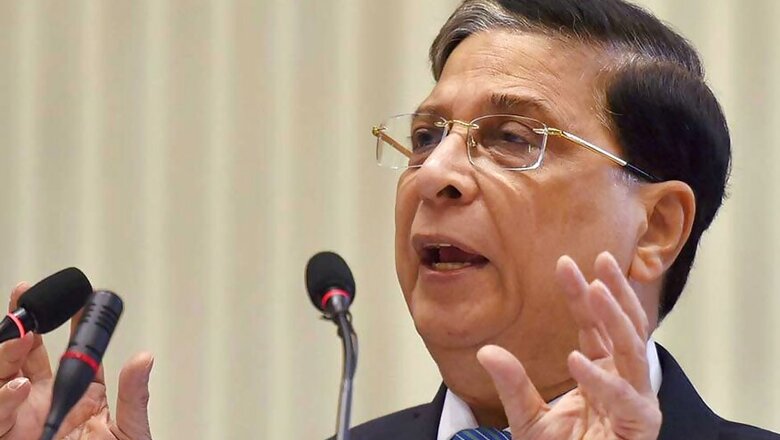
views
New Delhi: Thinkers, philosophers, writers, poets from ancient history to contemporary times as well as a popular Bollywood song were mentioned in the historic verdict delivered on Friday by the Supreme Court recognising a terminally-ill patient's right to execute a "living will" to refuse medical treatment.
A five-judge constitution bench headed by Chief Justice Dipak Misra in respective judgments referred to Indian philosophers like Swami Vivekananda and Charvaka as well as ancient Greek thinkers like Epicurus, Plato and Hippocrates while dealing with the issue of "smoothening" the process of dying for patients who are terminally ill or in a persistent vegetative state.
Apart from philosophers, noted European poets and writers like William Shakespeare, Alfred Tennyson, John Locke, John Dryden, Leon Montenaeken, John Donne, Ernest Hemingway and Dylan Thomas also found mention in the apex court verdict which cited their works on life and death.
The CJI in his judgement quoted Tennyson who in one of his works said, "No life that breathes with human breath has ever truly longed for death".
Shakespeare in his play "As You Like It" had said all the world's a stage and all the men and women merely players.
The CJI also referred to mythological character of epic Mahabharata -- 'Dharmaraj Yudhisthira' -- who had said that though man sees that death takes place every moment, yet he feels that the silence of death would not disturb him.
Celebrated Greek philosopher Plato, referred to by Justice Ashok Bhushan in his decision, said if a man had a sickly constitution and intemperate habits, his life was worth nothing to himself or to anyone else.
Plato had said medicine was not meant for such people and they should not be treated, though they might be richer than Midas.
Justice A K Sikri referred to the popular Bollywood number -- 'Rote hue aate hai sab, hasta hua jo jayega, woh Muqaddar Ka Sikandar jaaneman kehlayega' (Every person comes to this world crying. However, one who leaves the world smiling will be the luckiest of all) -- and said when a person's life span comes to an end he or she has to meet death.
















Comments
0 comment